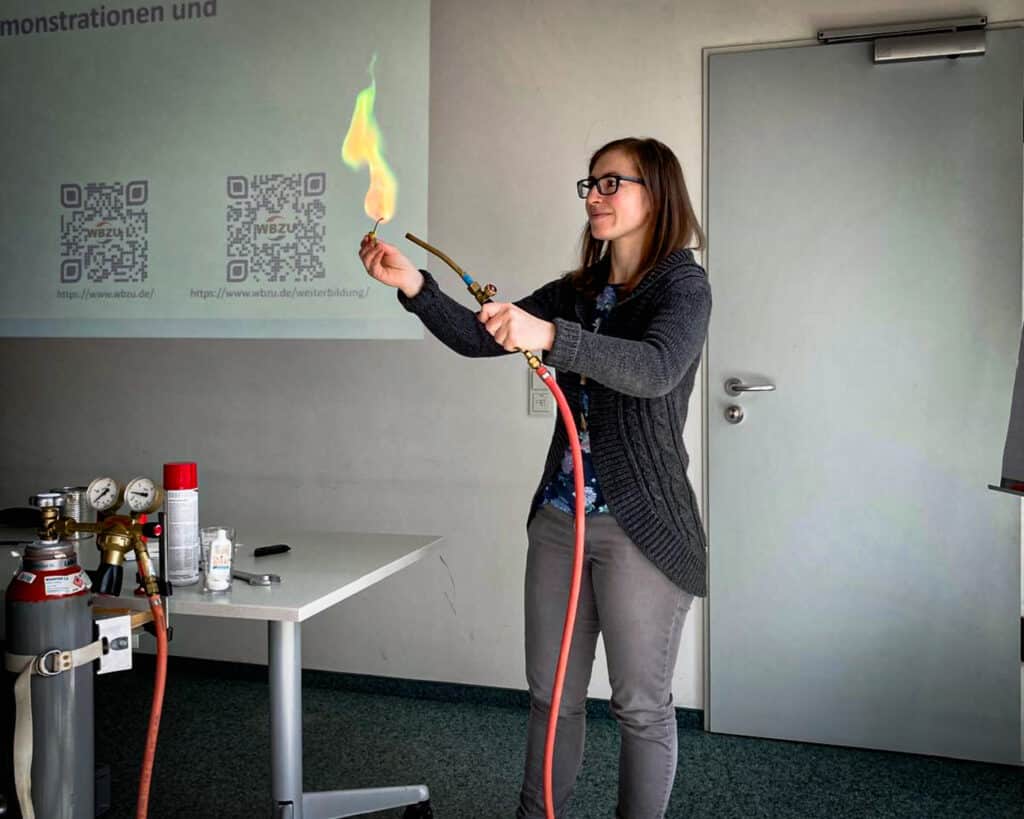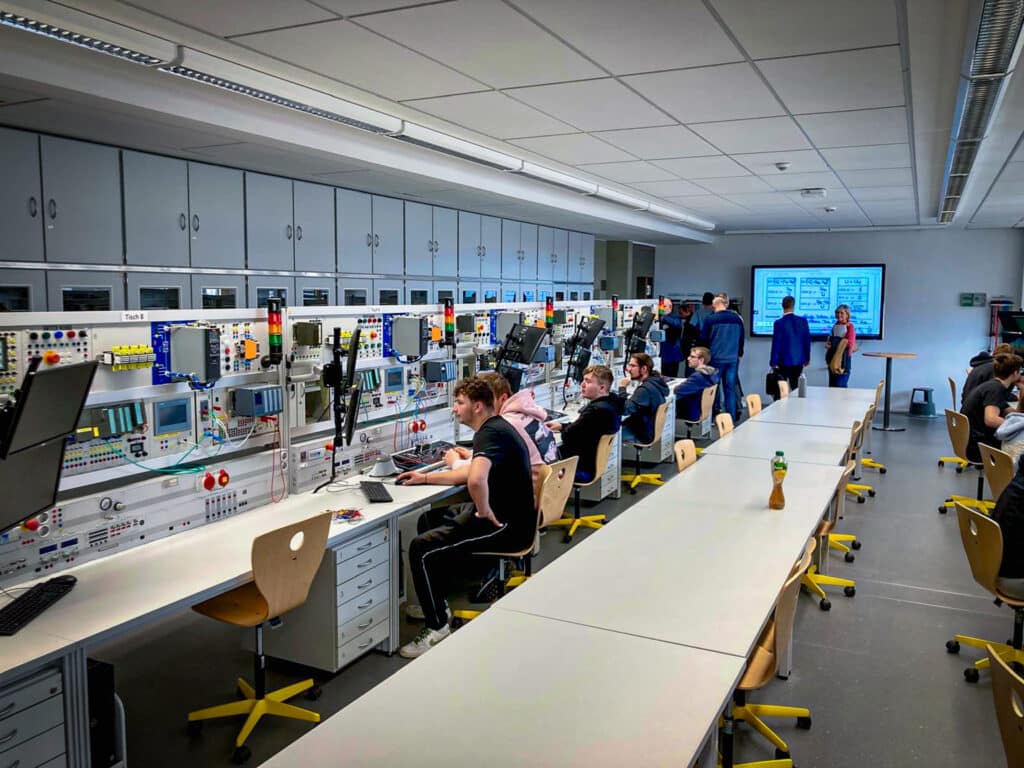From March 31 to April 3, 2025, a professional delegation of Czech education representatives embarked on a study trip to Germany focused on dual education, technological innovation, and the future of vocational training. Representing the Moravian-Silesian Technology Academy (MTA) was key activity coordinator Jan Kelar. The trip was organized by the Czech-German Chamber of Commerce and Industry (ČNOPK) with financial support from the German Federal Ministry for Economic Affairs and Climate Action.
Best Practices in Action: Companies Educating the Future
Visits to companies such as WITRON and Liebherr Biberach demonstrated how closely education can be linked to real working environments. Apprentices are integrated into company processes, have personal mentors, motivating financial compensation, and access to modern technologies. Project-based learning is not just a concept but a standard part of education.
At Liebherr, the delegation had the opportunity to observe the cooperation with Karl-Arnold-Schule, where apprentices not only study but also complete real production tasks in cooperation with companies, culminating in a final presentation before a professional jury.
Craft Chambers and Intercompany Training Centers
One of the most inspiring aspects of the trip was the Handwerkskammer (Chambers of Crafts) system, which operates intercompany training centers, standardizes training programs, and provides both methodological and personnel support. The chambers oversee everything from final exams to master training and ensure the quality and integration of practical experience with theory.
In Schwandorf and Heilbronn, the group visited state-of-the-art training centers focused on construction, electrical engineering, and metalworking. A key benefit was also the opportunity to exchange experiences between school and company representatives during professional roundtables.
WBZU Ulm – A Center for the Future of Hydrogen Energy
A highlight of the program was the visit to WBZU (Weiterbildungszentrum für innovative Energietechnologien) in Ulm – one of the few European training centers specializing in hydrogen technologies.
WBZU offers certified training courses for technicians, craftsmen, and industry professionals in the areas of:
• Hydrogen safety,
• Hydrogen production (electrolysis),
• Hydrogen fuel cells,
• Installation and maintenance of hydrogen systems,
• Planning and operation of hydrogen refueling stations.

The group witnessed demonstrations of hydrogen properties, such as the hydrogen flame and its detection methods, and hands-on sealing and testing of hydrogen systems. One key message resonated throughout: “The future lies in green hydrogen – and we must be ready.”
WBZU also supports technology transfer, development of new educational programs, and collaboration with companies transitioning toward energy self-sufficiency.
Key Outcomes and Inspiration for MTA
Germany’s approach to dual education and vocational development stands as an example of a highly functional system based on:
• Cooperation between schools, companies, and chambers,
• Standardized education across regions,
• Modernization of disciplines in line with current technological trends,
• Strong linkage between learning and the real labor market.
The experience and connections established during the trip will be used not only to enhance the preparation of MTA’s educational content creators and foster collaboration with international colleagues, but also to develop new EduBoxes across various sectors.
We extend our sincere thanks to ČNOPK, and especially to Andrea Husmann, for the flawless organization. This trip confirms that innovation in education makes sense—when schools, companies, and government work together in a structured and systematic way.





